Visiting the Success 2022
Club members Rev. Margaret Fowler reports on her October visit to Kenya to see our Borewells in operation.
Sites Of Our Success
Margaret Fowler reports on her October visit to Kenya to see our Borewells.
"My last visit there was before Covid in September 2019, and I knew this particular trip was going to be a busy one."
Wells x 10
Since my last visit, our borewells in 10 schools are providing clean water to about 5,500 children – all thanks to the inspiration of the Rotary Club of Billericay and international fund-raising programme. The amazing thing about this project was that it had been accomplished during the two years of Covid when we could not even meet.
My Thirteenth Trip to Kenya
Over the years I have largely concentrated my time in and around Ciamanda Primary School, the school we have been linked with at Christ Church, together with Buttsbury Junior School, since 2007. The link is a Chelmsford Diocesan project to link schools and churches in Kenya with schools and churches in Chelmsford Diocese.
I was accompanied on the trip by Bill Howard, a retired engineer and member of Christ Church. Bill wasn’t quite sure why he wanted to come on this trip, but he soon found out why! His expertise as an engineer and understanding of how borewells function was a skill I really didn’t have!
Our schedule was sent to us in advance and looked extremely busy. As we later discovered, we were in demand to fit in other meetings and visits that weren’t already on the packed itinerary. That was the price of not having visited Kenya for two years!
The Lack of Water
On arrival we found that everyone was talking about water – the lack of it. The rains had not arrived, and everyday people were trying to read the skies. It hadn’t rained in Embu County for months, and Embu is the breadbasket of Kenya, so things were serious. In the Northern part of Kenya, an area called Marsabit, it had not rained for 3 years. Water was the topic of conversation everywhere. River levels were low or dried up completely, and crops could not be planted until the rains started, so it was a very worrying time.
Every School a Winner
We began the day after our arrival in Embu, travelling to each of the schools along dusty roads that seemed to wind forever around the foothills of Mount Kenya, going up and down steep hills between trees and fields. We found every school was expecting us and had prepared food and drink (despite us just having had breakfast or lunch!), followed by a guided tour around the school and to see the borewell, and then a ‘thank you’ celebration given by the children singing and dancing for us. They were really excited to see Bill and I, as most of the children had never seen a white person before.
At each school we took photos in front of the new borewell and the water tank, and we were shown the outcome of having a good supply of water in the school. Some schools had built a hand-washing station or standpipes in front of the classroom areas, and all of them had been able to plant bananas, kale or other vegetables because they now had water to spare for the crops. These crops could be used to feed the children or be sold to buy equipment for the school.
I had carried in my luggage the signs to be displayed at each school which showed which Rotary Club had contributed to that particular school’s borewell. We explained to the Headteacher how to display the sign so that it was secure.
Maintenance Needed
We discovered that the pump at ACK Karungu School had to be replaced, and that the failed pump would be repaired and kept as a spare should any of the other pumps fail. The borewell at ACK Magaca had stopped working as the water table had dropped considerably due to lack of rains.
It was then found that the water had been running above a deep rock layer which needed removing. We funded skilles labour to dig through the rock in order to get the borewell working again. The Kenyans are very resourceful, and I am confident that these borewells will be satisfactorily repaired.
Rotary Club of Embu members accompanied us to every school. It was National Handwashing Week, so they took advantage of the fact that these schools have a water supply to demonstrate to the pupils how to wash hands correctly and to give each of them a bar of soap to take home. About 4,000 bars of soap were distributed. I cannot imagine what our schoolchildren might think about being given a bar of soap, but I can only tell you that these Kenyan schoolchildren were delighted!
A Surprise Assignment
The Rotary Club of Embu meets at the Nokras Silver Oak Hotel in Embu, and Bill and I were invited to their meeting on the Wednesday evening. I had attended a meeting in September 2019 when I was asked by Rotary Club of Billericay to invite the Rotary Club of Embu to partner with us in this project. They subsequently agreed, of course. The rest is history!
I had only been told the day before the meeting that I was to be the Guest Speaker, but this didn’t surprise me as it had happened on my previous visit. After the usual formalities of a Rotary meeting, I was invited to speak, and I was able to personally thank the Rotary Club of Embu for everything they had done to make this project happen. In particular, I thanked Rtn Ruth Wambui and Headteacher Lucy Mbogo for the parts they played, although other Rotarians, and others, had been involved. Some of the members hadn’t realised that this had been a truly international project with people from all over the world making donations towards the borewells. I produced the copies of the Final Report which our International & Foundation Chair, Malcolm Acors, had printed for us, and they were all quickly taken!
What an Occasion
The Rotary Club of Billericay had awarded Headteacher, Mrs Lucy Mbogo, a Paul Harris Fellow Award which she had only ‘received’ via zoom. This was in recognition of all the work she has initiated or carried out to improve the lives, particularly of children in her community, including the borewell project. I read out the Citation and gave her the Award.
It was a lovely evening when everyone wanted to take photographs to remember the occasion when our two Clubs had worked together.
My closing words were this:
“My husband would say: “There are people in this world who watch things happen, there are others who make things happen, and there are others who say “what happened?” Rotary is an organisation that makes things happen and I am very proud to be part of it.
On behalf of the Rotary Club of Billericay I thank you for your contribution in making this amazing borewell project happen.”
Related pages...
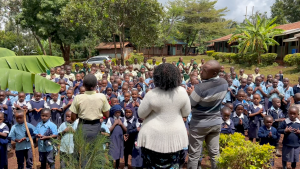
May 2025 Status
more Progress has been made in resolving the issues restricting water flow from some of the wells.
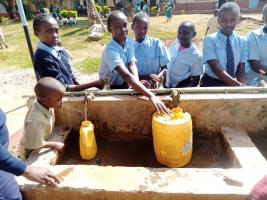
Great Progress in Embu 2025
more We recently received an updated status report on progress in resolving the (previously reported) problems with some of the borewells in Embu, Kenya
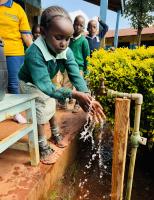
Borewells Project Completed
more What a Success
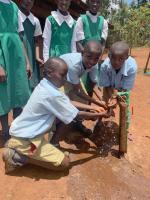
Revisiting the Wells 2023
more Margaret Fowler returned in March 2023 to see what progress had been made since her November visit.
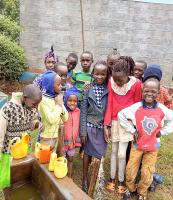
Kenya Water Wells Project Success
more Project completed - Objectives Exceeded - TEN wells built and in operation
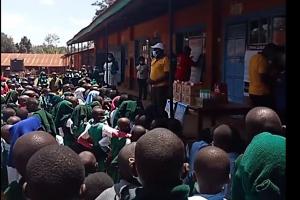
Now It's Ten not Six
more Fundraising exceeded expectations and we are able to fund not just the original 6 Borewells, but a total of 10 borewells in all.
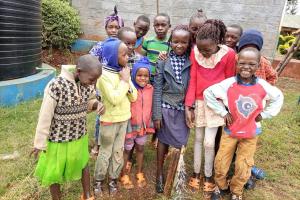
Kenyan Water Wells Donation Process
more Make these children Happy and Safe! Help deliver Fresh clean water for 2,500 Kenyan Schoolchildren by donating to this project. Donate here.

Our Bonus Day Campaign
more Bonus Day event - Give on December 9 and help us win a prize for the most donors to this project.
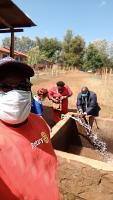
Kenyan Borwells - not boring at all
more The background to our story
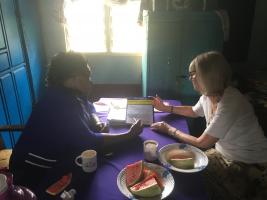
Success Built on Team Effort
more A personal reflection by Rtn. Revd. Margaret Fowler

Funding Shortfall - From Plan to Reality
more How we used Crowdfunding to raise the "missing" money we needed.
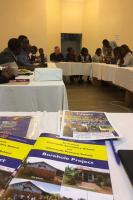
Making a Real difference
more A resume of the origin, support and delivery of the project
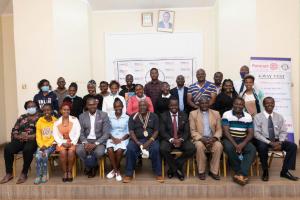
Project Lessons
more Key conclusions we learnt from this project.
Borewell Videos
more A selection of videos taken during the project implementation at some of the schools where the wells are being dug.
back to page above this...
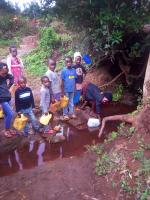
Clean water - 10 Wells for 5,500 Children
back 5,500 children at 10 schools in Kenya, are benefitting from reliable, fresh, clean water for drinking, washing, cleaning, and watering of crops. This will make a huge difference to their lives for less than ten pounds per child.












